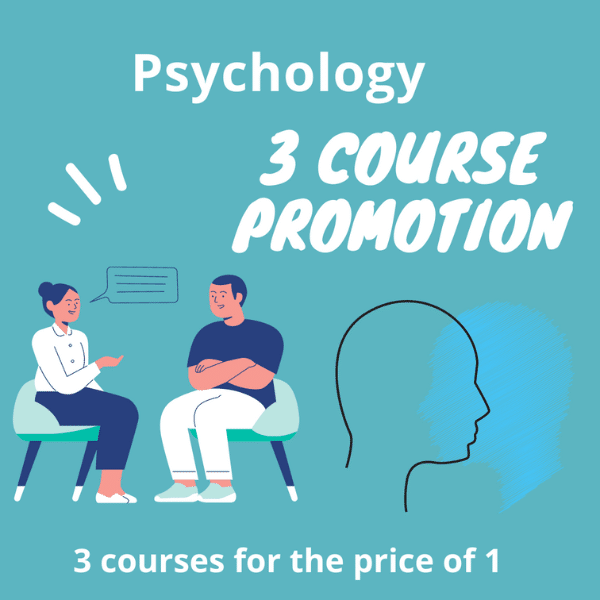Discover how Positive Psychology can transform your life through the enduring legacy of Martin Seligman. This guide provides an in-depth exploration of Martin Seligman’s work, which delves into his genuinely remarkable contributions to the science of happiness and the psychology of well-being. Dive into the ethical foundations of Positive Psychology, its practice in everyday life, and observe its unparalleled influence on people as well as the whole social structure. Depending on whether you are a student, a practitioner, or anyone looking to maximize your life, the overview provides recommendations to enhance your resilience, increase positive emotions, and achieve personal growth.
Table of Contents
-
Introduction
-
The Foundations of Positive Psychology
-
Martin Seligman: The Father of Positive Psychology
-
Key Contributions of Martin Seligman to Positive Psychology
-
Key Concepts and Principles
-
Applications of Positive Psychology in Daily Life
-
Positive Psychology in the Workplace
-
Future Directions of Positive Psychology
-
FAQs
Martin Seligman: The Father of Positive Psychology
Martin Seligman, known by many as the “Father of Positive Psychology,” has been a core figure in the development of psychology as we know it today. Previous to his presidency of the American Psychological Association (APA) in 1998, psychology had long been concentrated on pathology or what is wrong with people. Seligman flipped this kind of looking glass around, thus giving the birth of a new science of human strengths and well-being happiness. He is a pioneer who has revealed the cornerstones of a successful living where he has focused on positive emotions, involvement, relationships, sense making and accomplishments. The scientific work of Seligman has introduced the well-known PERMA model as the basis of research related to well-being and happiness. The contributions of Martin Seligman in the field of positive psychology are notable due to his in-depth explorations, writings and teaching. He has in a way, created a new generation of individuals that now explore their full potential for growth and wellbeing rather than focusing on the negatives. His legacy is a proof of the power of nurturing human abilities and talents.
The Foundations of Positive Psychology
The foundations of Positive Psychology rest on the groundbreaking premise of understanding what makes life most worth living. Pioneered in the late 1990s by Martin Seligman, this field represents a shift from traditional psychology’s focus on mental illness to exploring human flourishing. Positive Psychology seeks to identify and cultivate the virtues and conditions that enable individuals and communities to thrive. Central to its foundation is the study of positive emotions, engagement, relationships, meaning, and achievement, collectively known as the PERMA model. This approach emphasizes strengths and virtues that foster resilience, enhance well-being, and contribute to a fulfilling life. By scientifically exploring the aspects of life that make it fulfilling, Positive Psychology aims to apply this knowledge to help people lead happier, more satisfying lives. It encourages a holistic look at human experiences, integrating research and practice to improve individual and collective well-being. Through its focus on positive human development, Positive Psychology offers a robust framework for understanding and enhancing the human condition.
Key Contributions of Martin Seligman to Positive Psychology
- Pioneering Positive Psychology: Martin Seligman launched the field of Positive Psychology in the late 1990s, aiming to shift the focus of psychology from solely addressing mental illness to also studying what makes life worth living.
- PERMA Model: He introduced the PERMA model, which outlines five key elements of well-being: Positive Emotions, Engagement, Relationships, Meaning, and Achievement.
- Learned Helplessness: Before Positive Psychology, Seligman’s research on learned helplessness laid the groundwork for understanding the impact of perception on motivation and behavior.
- Character Strengths and Virtues: Along with colleagues, he developed a classification of character strengths and virtues, aiming to promote a scientific understanding of human goodness.
- Resilience Training: Seligman has been involved in developing programs aimed at building resilience in various populations, including military personnel, to combat depression and promote well-being.
- Authentic Happiness: He proposed the concept of “Authentic Happiness,” suggesting that true happiness is derived from identifying and cultivating one’s strengths and virtues.
- Positive Education: Advocating for the integration of Positive Psychology principles into education to foster well-being, character development, and resilience among students.
- Evidence-Based Approaches: Seligman emphasizes the importance of empirical research and evidence-based approaches in psychology, ensuring that Positive Psychology interventions are scientifically validated.
Key Concepts and Principles
Positive Psychology centers on several key concepts and principles that distinguish it from traditional psychological approaches. At its core, it investigates what constitutes a fulfilling and flourishing life. The PERMA model stands out as a fundamental framework, encapsulating Positive Emotions, Engagement, Relationships, Meaning, and Achievement as critical to well-being. Positive Psychology emphasizes the importance of nurturing strengths rather than merely correcting weaknesses, advocating for resilience, optimism, and gratitude as vital components of mental health. It also explores how these elements can be cultivated to enhance individual and communal well-being, aiming to equip people with the tools for a more positive and fulfilling life.
Applications of Positive Psychology in Daily Life
The applications of Positive Psychology in daily life are vast and transformative, offering practical strategies to enhance well-being and happiness. By practicing gratitude, individuals can cultivate a more positive outlook and appreciate life’s gifts. Engaging in activities that foster flow, or complete immersion, enriches one’s sense of engagement and fulfillment. Building and maintaining strong, supportive relationships contribute significantly to emotional well-being. Pursuing meaningful activities that align with personal values enhances a sense of purpose. Setting and achieving goals promotes a sense of accomplishment and self-efficacy. Mindfulness practices improve emotional regulation and reduce stress. Lastly, identifying and leveraging personal strengths enables individuals to navigate life’s challenges more effectively, fostering resilience and a positive state of mind.
Positive Psychology in the Workplace
Positive Psychology in the workplace radically shifts the culture of organizations in placing the employees’ mental health, engagement and productivity at the center of the working environment. It brings forth tactics that encompass a positive working environment that could serve to have numerous advantages for both the employees themselves and an organization. Here are key aspects of applying Positive Psychology in the workplace:
Here are key aspects of applying Positive Psychology in the workplace:
- Enhancing Employee Well-being: Adhering to policies that build and sustain effective job attitudes and increase the sense of well-being at work contributes to users’ reduction of stress levels.
- Building Positive Relationships: Promoting teamwork and friendly interaction among employees helps in establishing a strong social connection and encourages a unified and collaborative work culture.
- Creating Meaningful Work: By integrating their work objectives with organizational goals and individual values, staff will develop a clearer idea about their own purpose and driving force.
- Encouraging Engagement and Flow: By designing tasks that are well matched to employees’ skills and interests, one can enhance engagement, which results in these experiences of flow that in turn draws in employees and energizes them as they put their time, effort and abilities in their work.
- Fostering a Growth Mindset: Creating an atmosphere where learning is encouraged, feedback is given, and resilience is fostered will ignite a constant growth in personal and professional development.
- Recognizing and Utilizing Strengths: One way to optimize performance is to find employees’ extraordinary strengths, encouraging them to do quality work, which allows them to grow personally and professionally.
- Positive Leadership: Leaders who show optimism, gratitude and compassion are in a position to boost the spirit of their team, make working as a unit comfortable and effect organizational change positively.
- Measuring and Cultivating Positive Outcomes: Through conducting frequent monitoring of employee satisfaction, engagement and well-being, the organization is able to make iterative improvements and maintain a positive work environment. Through the application of Positive Psychology principles companies can craft more involving and engaging work environments which will lead to accelerating the performance, improvement of the turnover rates and ultimately to the employee
Future Directions of Positive Psychology
The future directions of Positive Psychology point towards a more integrated, inclusive, and applied discipline, expanding its reach and deepening its impact on individual and societal well-being. Here are several anticipated developments:
- Greater Integration with Technology: Leveraging digital platforms and tools to promote well-being, through apps that support mental health practices, virtual reality for immersive therapeutic experiences, and AI to personalize well-being strategies.
- Expanding Cultural Contexts: Acknowledging and incorporating diverse cultural perspectives in Positive Psychology research and practice to ensure its principles are universally applicable and respectful of cultural differences.
- Enhancing Physical Health: Increasing emphasis on the connection between mental and physical health, exploring how positive psychological states can influence physical health outcomes and vice versa.
- Workplace Well-being: Further integrating Positive Psychology into organizational development and leadership training to cultivate positive work environments that enhance productivity and employee satisfaction.
- Education and Positive Schooling: Expanding the application of Positive Psychology in educational settings, focusing on character development, resilience training, and fostering positive learning environments.
- Community and Societal Well-being: Applying Positive Psychology principles at the community and societal level to address social challenges, improve community resilience, and promote social well-being.
- Cross-disciplinary Collaboration: Collaborating with other disciplines such as neuroscience, sociology, and economics to provide a more comprehensive understanding of well-being and human flourishing.
- Personalized Interventions: Developing more personalized and adaptive interventions based on individual differences and needs, utilizing data analytics and machine learning to tailor well-being strategies.
These future directions aim to broaden the scope of Positive Psychology, making its benefits more accessible and relevant to a wider audience, while continuing to explore the depths of human potential and happiness.
Conclusion
Positive Psychology offers a transformative lens through which to view human potential and happiness. By focusing on strengths, well-being, and fulfillment, it challenges conventional approaches to mental health and personal development. The future of Positive Psychology promises to further integrate technology, embrace cultural diversity, and expand its application across various sectors of society. As it continues to evolve, Positive Psychology will undoubtedly play a pivotal role in shaping a more positive, resilient, and flourishing global community, enhancing the quality of life for individuals and societies alike.
FAQ’S
Q1;What is Positive Psychology?
A. Positive Psychology is a branch of psychology that focuses on the study of positive human functioning, aiming to discover and promote factors that allow individuals and communities to thrive.
Q2. How did Martin Seligman contribute to Positive Psychology?
A. Martin Seligman is widely recognized as the founder of Positive Psychology. He shifted the focus of psychology from solely treating mental illness to exploring what makes life worth living, introducing concepts like the PERMA model to quantify well-being.
Q3. How can Positive Psychology be applied in everyday life?
A. Positive Psychology can be applied in various aspects of everyday life, from improving personal relationships and enhancing well-being, to boosting workplace productivity and fostering community resilience. Techniques include practicing gratitude, engaging in positive activities, and nurturing strengths.




